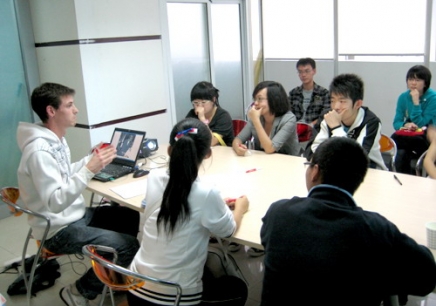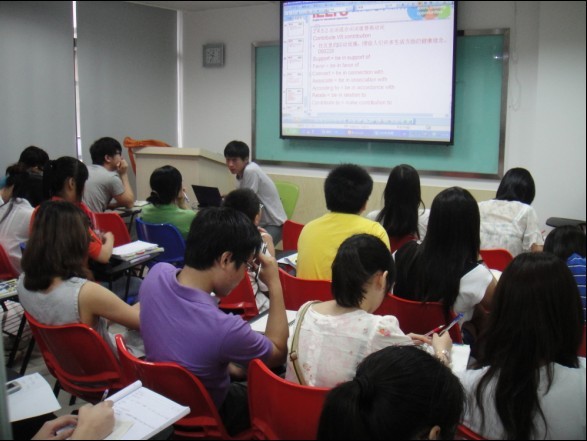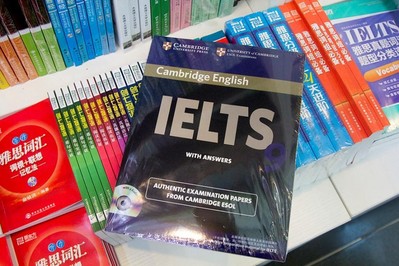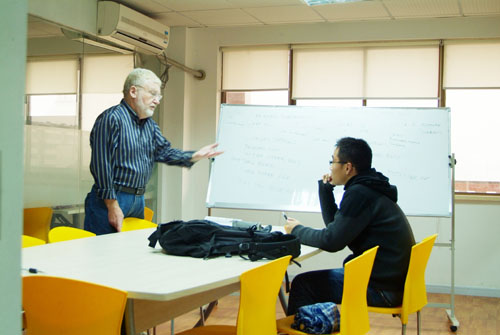 返回
教育头条
返回
教育头条

雅思考试大作文分析及范文分享 雅思阅读
8雅思考试大作文,听学生回忆今天阅读和听力还是有点难度,文老也是为同学们捏了一把汗哦,好在今天的大作文题目相比上周考试还是要简单不少,属于雅思写作中的“老题”,然而文老还是相信可能还是会有一些同学们因为没有练到过或者能力还不够甚至还有些同学太过紧张影响了发挥,做不到完全正确地审题和精准地扣题。
不过没有关系,这都是非常正常的事情,文老想做的就是帮助大家一次次从真题中汲取经验,获得充足的进步,成功拿到自己心仪的分数,大家要带好小本本记好要点哦。
2019年8月31号真题(考生回忆)
Public museums and art galleries are not needed because peoplecan see historical objects and artistic works by using computers. To whatextent do you agree or disagree?
题目剖析
1.文章类型
其实上过文老课的同学都会觉得熟悉,这曾是文老课堂上分析过的题目。当文老拿到一篇作文题目的时候,一、部就是分析这个题目的类型——典型的科技类话题 博物馆的一个讨论,那么这个时候同学们就应该和文老一起将大脑思考模式切换成如何运用科技类的素材及Museums素材提取模式。
2. 侧重点与易错点
接着,文老会开始挖掘题目本身,整个题目关键的点就是准确找出题目的侧重点(一旦发现出题者为大家挖的坑在哪,就可以完美避开内容上的偏题)
侧重点与易错点
这里的题目看起来是针对Computers进行讨论,不少同学可能就开始写Computer的好与坏,一旦这样做就掉入了出题者的陷阱。实际上这个题目非常狡猾,因为它还给了主题词:Museums and artgalleries
题目的观点是:因为可以在电脑上观看藏品,所以博物馆就不需要了。
那么究竟是支持还是反对,文老建议大家一定要明白这是一场语言考试,不是一场哲学考试,不需要真正苦思冥想表达一些惊为天人的意见,更多的是选择怎么好写怎么写,像文老就会觉得“反对”对于大多数人来说更容易写:博物馆的功能有收藏(collection),保存(preservation),研究(research),展示(exhibition)和交流(communication),因此仅仅从电脑上观看藏品,是无法取缔博物馆的。
文章结构
在抓准了要点后,接下来就需要确定文章的结构(大纲),

范文实例
大家可以结合这篇文老的范文来感受一番文老的思路,在这之前可以先看一下文章所运用的一些词汇与短语:
We live in a world where we can get information with the click of a mouse. Compared to even a decade ago, theInternet has allowed us to see and do more without ever leaving our desk. But when it comes to viewing objects of art and other items, is itthe same as visiting them in person? Clearly, I think thatthere is a difference between something real andvirtual.
First, begin by remembering a trip you made to a museum or historical relic. Surely much of what makesyour memory great is not just seeing theobject, but all of the other senses that you used as well: the smell, theatmosphere, the other people admiring it. There are only possible when viewingsomething in person.
Secondly, seeing something in person allows you to noticedetails that you might otherwise miss. For example, when I saw the pyramids inperson, I was amazed at how uneven they were up close, and howlarge. When I had seen before online, I had no concept of these details.
Of course, the Internet can still be a useful visualtool. Before a person goes a trip, for example, they can research the placethey are visiting along with historical items. In this way when they arrive,they can have a better idea of what to expect.But under no circumstances should we think that viewingsomething online is the same as in person.
To conclude, I feel that a virtual, online world should complement but not replacethe real one. We allneed to get out of our homes and go places to see things, because it is theoverall experience and journey that makes it memorable and meaningful.
不过没有关系,这都是非常正常的事情,文老想做的就是帮助大家一次次从真题中汲取经验,获得充足的进步,成功拿到自己心仪的分数,大家要带好小本本记好要点哦。
2019年8月31号真题(考生回忆)
Public museums and art galleries are not needed because peoplecan see historical objects and artistic works by using computers. To whatextent do you agree or disagree?
题目剖析
1.文章类型
其实上过文老课的同学都会觉得熟悉,这曾是文老课堂上分析过的题目。当文老拿到一篇作文题目的时候,一、部就是分析这个题目的类型——典型的科技类话题 博物馆的一个讨论,那么这个时候同学们就应该和文老一起将大脑思考模式切换成如何运用科技类的素材及Museums素材提取模式。
2. 侧重点与易错点
接着,文老会开始挖掘题目本身,整个题目关键的点就是准确找出题目的侧重点(一旦发现出题者为大家挖的坑在哪,就可以完美避开内容上的偏题)
侧重点与易错点
这里的题目看起来是针对Computers进行讨论,不少同学可能就开始写Computer的好与坏,一旦这样做就掉入了出题者的陷阱。实际上这个题目非常狡猾,因为它还给了主题词:Museums and artgalleries
题目的观点是:因为可以在电脑上观看藏品,所以博物馆就不需要了。
那么究竟是支持还是反对,文老建议大家一定要明白这是一场语言考试,不是一场哲学考试,不需要真正苦思冥想表达一些惊为天人的意见,更多的是选择怎么好写怎么写,像文老就会觉得“反对”对于大多数人来说更容易写:博物馆的功能有收藏(collection),保存(preservation),研究(research),展示(exhibition)和交流(communication),因此仅仅从电脑上观看藏品,是无法取缔博物馆的。
文章结构
在抓准了要点后,接下来就需要确定文章的结构(大纲),

范文实例
大家可以结合这篇文老的范文来感受一番文老的思路,在这之前可以先看一下文章所运用的一些词汇与短语:
We live in a world where we can get information with the click of a mouse. Compared to even a decade ago, theInternet has allowed us to see and do more without ever leaving our desk. But when it comes to viewing objects of art and other items, is itthe same as visiting them in person? Clearly, I think thatthere is a difference between something real andvirtual.
First, begin by remembering a trip you made to a museum or historical relic. Surely much of what makesyour memory great is not just seeing theobject, but all of the other senses that you used as well: the smell, theatmosphere, the other people admiring it. There are only possible when viewingsomething in person.
Secondly, seeing something in person allows you to noticedetails that you might otherwise miss. For example, when I saw the pyramids inperson, I was amazed at how uneven they were up close, and howlarge. When I had seen before online, I had no concept of these details.
Of course, the Internet can still be a useful visualtool. Before a person goes a trip, for example, they can research the placethey are visiting along with historical items. In this way when they arrive,they can have a better idea of what to expect.But under no circumstances should we think that viewingsomething online is the same as in person.
To conclude, I feel that a virtual, online world should complement but not replacethe real one. We allneed to get out of our homes and go places to see things, because it is theoverall experience and journey that makes it memorable and meaningful.
雅思考试大作文分析及范文分享 雅思阅读,如果你喜欢这篇文章,请将其保留版权转载。我的微信号(18560125702)欢迎来咨询,10年教培行业工作经验,如果你在雅思方面有疑问,请与我联系,我将为您提供全面专业的选课帮助。返回教育宝头条
【免责声明】本文仅代表作者本人观点,与教育宝无关。教育宝对文中陈述、观点判断保持中立,不对所包含内容的准确性、可靠性或完整性提供任何保证。请读者仅作参考,特此声明!





